Physical Address
304 North Cardinal St.
Dorchester Center, MA 02124
Physical Address
304 North Cardinal St.
Dorchester Center, MA 02124
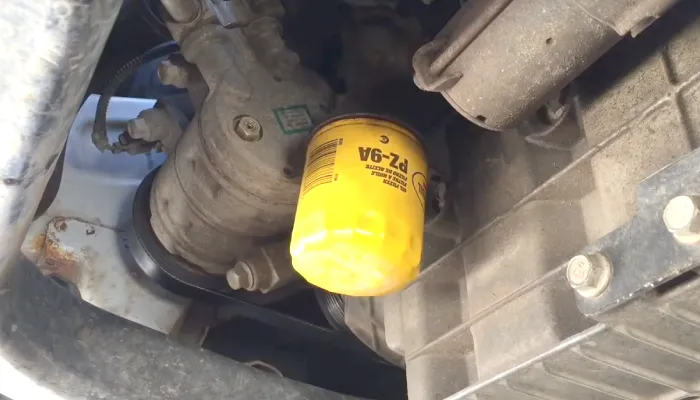
Maintaining a properly functioning oil filter in your vehicle is crucial for the health and longevity of your engine. An oil filter serves as a guardian, protecting your engine from contaminants that can cause damage and reduce efficiency.
However, as per my research, a loose oil filter can undermine this vital role, leading to a cascade of problems and potential engine damage. The loose filter can cause low oil pressure, resulting in engine misfires and timing issues.
Throughout this article, I will cover the consequences of a loose engine oil filter on your vehicle and what causes it to loosen.
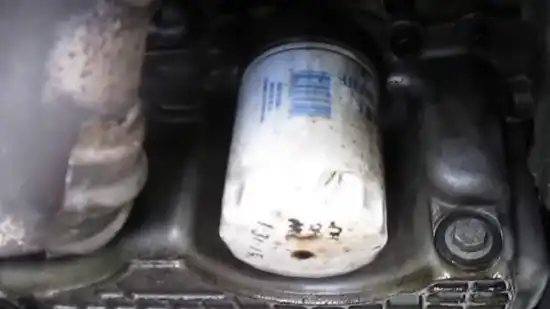
Depending on the results of my research, a loose oil filter can seriously affect your vehicle’s performance and overall engine health. Here are seven consequences associated with a loose oil filter:
One clear indicator of a loose engine oil filter on a vehicle is the presence of fresh oil drops or puddles underneath the car. This occurs because the loose filter fails to create a proper seal against the engine, allowing engine oil to escape.
Here, I mention three problems related to these leaks and puddles of oil.
If the engine oil filter is loose on your vehicle, you may need to top off the oil between scheduled changes frequently. Continuous oil top-offs are necessary because a loose oil filter can result in a gradual loss of engine oil. This can be both inconvenient and costly, as it requires more time and money spent on purchasing and adding oil.
Moreover, the need for frequent oil top-offs indicates a problem with the oil circulation in your engine.
Experiencing low oil pressure is a consequence of having a loose engine oil filter on your vehicle. When the oil filter is loose, it can result in oil leakage and reduced oil flow to the engine components. This can lead to insufficient lubrication, causing increased friction and heat.
As a result, the engine may experience premature wear and potential damage to vital components such as bearings and cylinder walls. The engine oil warning light on the dashboard is likely to illuminate, indicating the low oil pressure condition.
I strongly advise not to ignore this warning, as prolonged periods of low oil pressure can lead to severe engine damage. If you suspect a loose oil filter, it’s essential to address the issue promptly to prevent further harm to your engine.
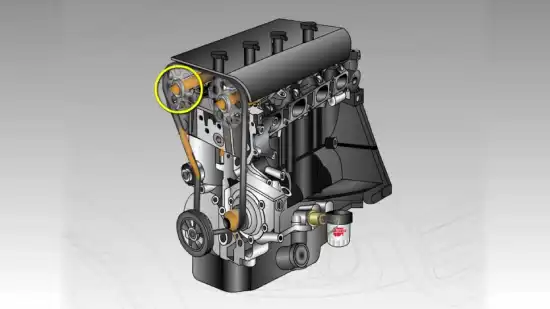
When the engine oil filter is loose on a vehicle, it can lead to engine misfires and timing issues. Although the loose oil filter may not directly cause misfires, it can indirectly affect engine timing.
Engine misfires occur when the fuel and air mixture in the combustion chamber fails to ignite properly. This can lead to a rough-running engine, decreased power, and increased fuel consumption. In contrast, timing issues can cause the valves and pistons to collide, resulting in severe engine damage.
In my knowledge, a loose oil filter on a vehicle can result in oil contamination, compromising the engine’s performance and longevity.
When the oil filter isn’t securely fastened, it can allow contaminants such as dirt, debris, and engine sludge to enter the engine’s oil supply. These contaminants mix with the oil and circulate throughout the engine, increasing wear on engine parts.
Over time, this can cause damage to critical components and reduce the overall efficiency of the engine. Contaminated oil also has a reduced ability to lubricate and cool the engine, further compromising its performance.
I’ve found that if the engine oil filter is loose on a vehicle, it can cause engine noise or knocking. This occurs because when the oil filter isn’t securely attached, it can result in oil leakage. As a result, the engine components may not receive the proper lubrication they need to function smoothly.
Without sufficient lubrication, the metal parts of the engine can rub against each other, causing friction and generating noise. This noise is often described as knocking or tapping sounds.
In the event that the engine oil filter on your vehicle is loose, it can result in a sudden reduction in engine performance. If an oil filter isn’t securely fastened, it can lead to oil leaks. This means the engine may not receive adequate lubrication, causing decreased power and overall performance.
You may notice that your vehicle experiences rough idling or sluggish acceleration. These changes in engine performance are clear indicators of a loose oil filter. It’s crucial to address this issue promptly to prevent further damage to the engine.
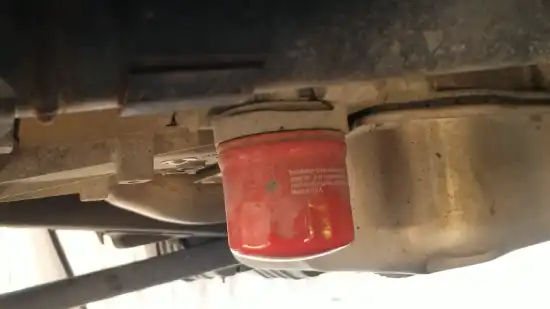
I believe there are several reasons why an oil filter might keep coming loose.
One common reason for a loose oil filter is when it’s over-tightened during installation. While it’s important to ensure a secure fit, excessive force can have detrimental effects. Over-tightening can cause the filter’s housing to become distorted, compromising its ability to create a tight seal.
Using the incorrect torque value when installing an oil filter can lead to the filter gradually becoming loose over time. Torque is the force applied to rotate an object around an axis, and it’s crucial to apply the correct amount of torque when installing an oil filter.
If too much torque is applied, it can cause the filter to become over-tightened and potentially damage the filter or the engine. On the other hand, if too little torque is applied, the filter may not be securely fastened, and it can loosen over time. This can result in oil leaks and decreased engine performance.
Damaged threads on the filter housing or the engine’s oil filter stud can prevent the filter from securely attaching. Stripped, cross-threaded, or otherwise compromised threads can cause the filter to work its way loose over time.
When the threads are damaged, they may not provide enough friction or grip to keep the filter in place. This can result in oil leaks, reduced oil pressure, and potential engine damage.
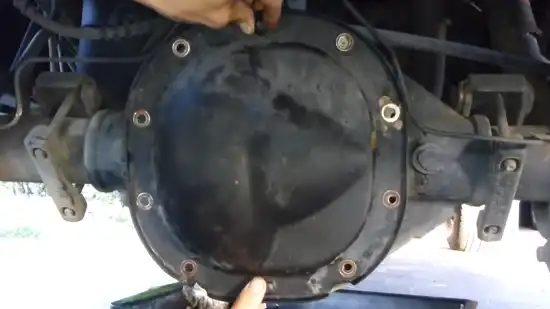
I’ve noticed that another common reason why your oil filter keeps coming loose is due to a double gasket. This occurs when a new oil filter is installed over the old filter’s gasket, creating an uneven sealing surface.
The presence of two gaskets can compromise the filter’s ability to properly seal, leading to leaks and a loose filter. When two gaskets are present, the filter may not be tightened properly, allowing oil to leak and potentially causing engine damage.
Using the incorrect filter can result in fitting issues, causing the filter not to screw on properly or provide a secure seal. Over time, this can cause the filter to become loose and potentially fall off, leading to a loss of oil pressure and inadequate lubrication for the engine components.
One important consideration is to hand-tighten the oil filter to ensure optimal performance and prevent excessive tightening. I found that using a tool to tighten the filter can lead to over-tightening, making it extremely difficult to remove in the future. Even with pliers or a strap wrench, the filter may not loosen.
Hand-tightening allows for sufficient sealing and prevents oil leaks while allowing easy removal during the next oil change. It’s important to note that while hand-tightening is recommended, it should be done with caution.
The oil filter can loosen on its own due to engine vibrations over time, potentially causing leaks and loss of oil pressure. Despite being securely attached during installation, these vibrations can gradually loosen the filter and compromise its sealing ability.
As the filter loosens, the seal between the filter and the engine can become compromised, allowing oil to escape. This can lead to oil leaks, which not only create a mess but also reduce the amount of oil circulating through the engine.
As you can see, if the engine oil filter is loose on your vehicle, it can lead to serious consequences. The filter mightn’t be able to effectively remove contaminants from the oil, resulting in poor lubrication and potential damage to the engine.
I recommend ensuring the oil filter is securely tightened during every oil change to avoid any issues. Neglecting this simple step can prove costly in the long run.
So, remember to always double-check your oil filter’s tightness for smooth and reliable engine performance.